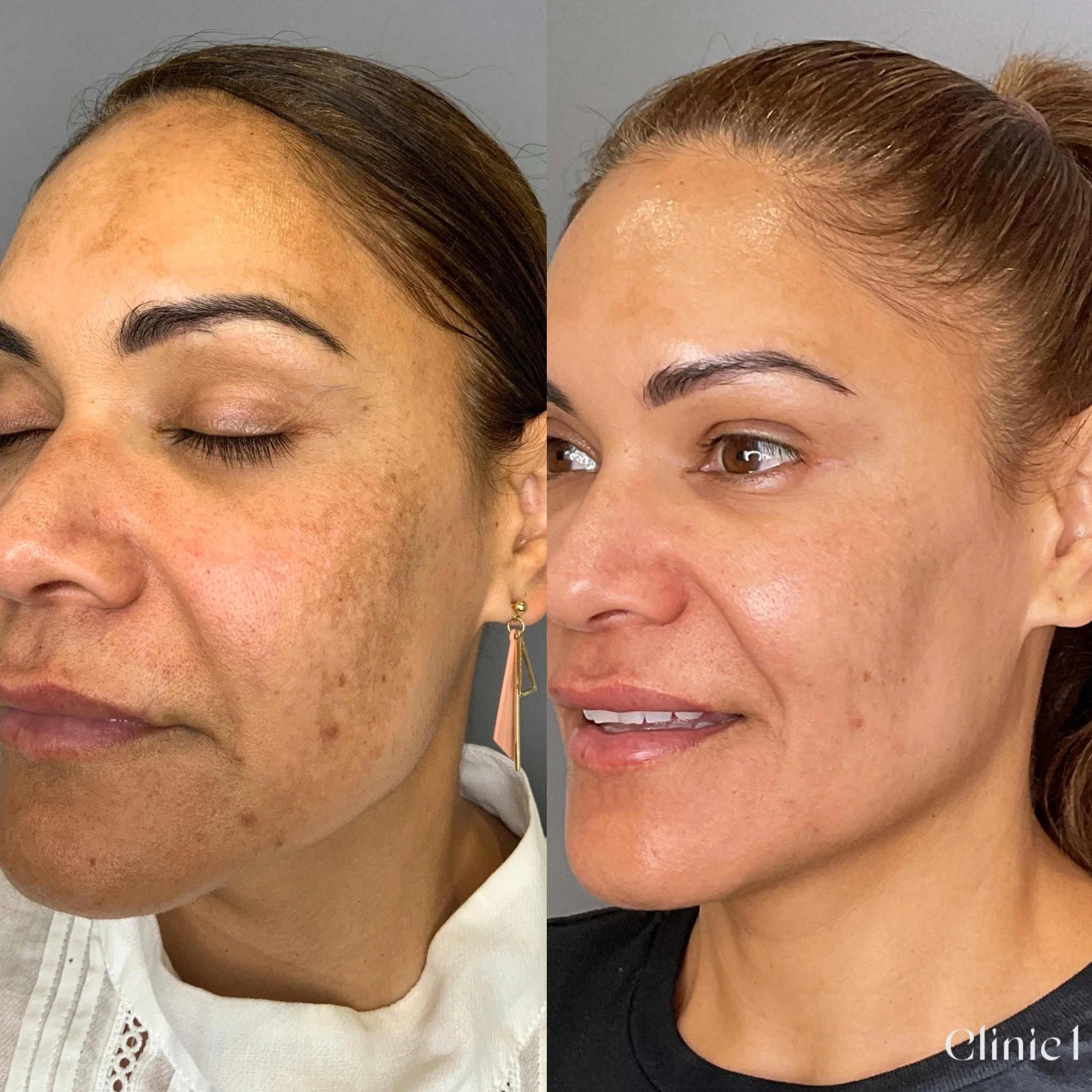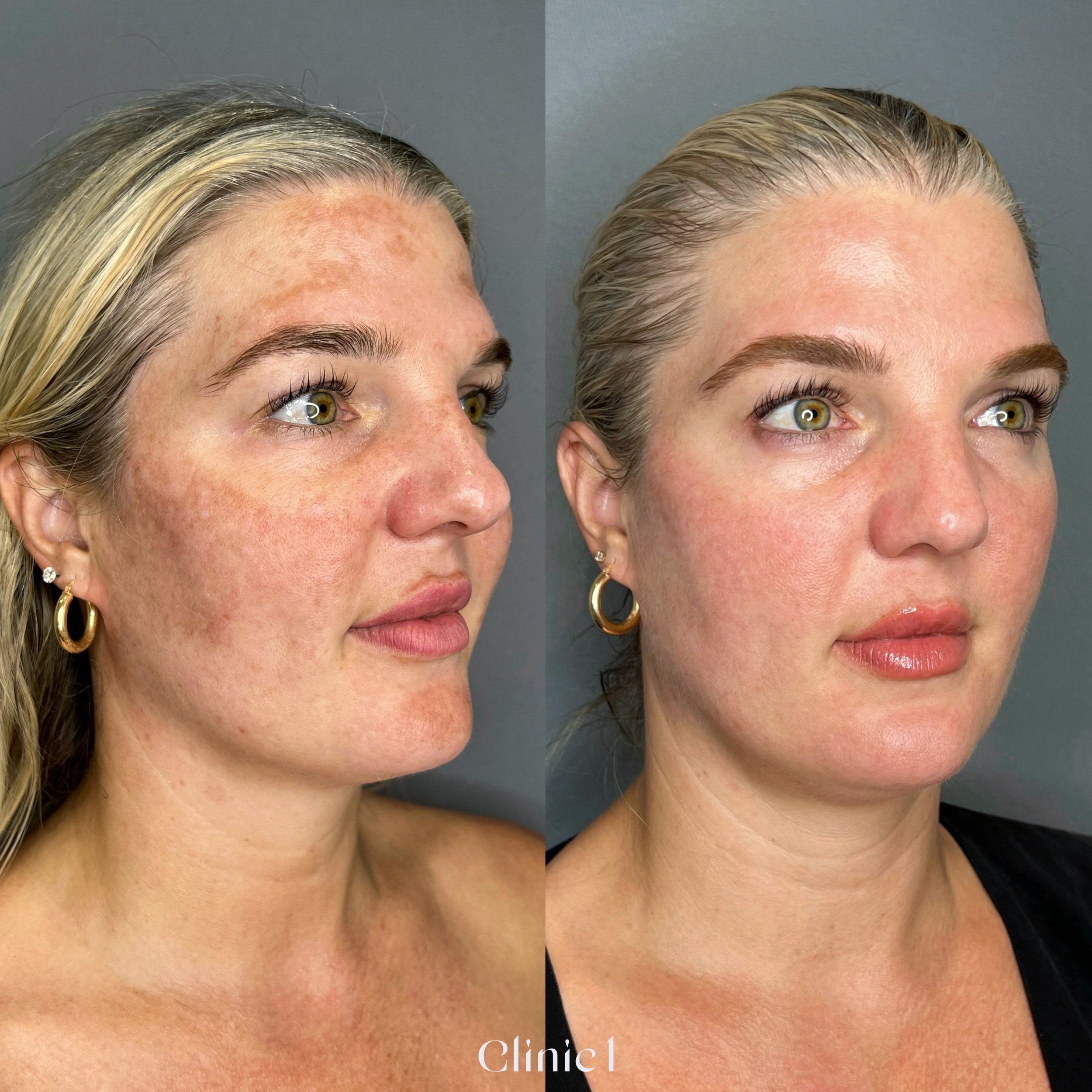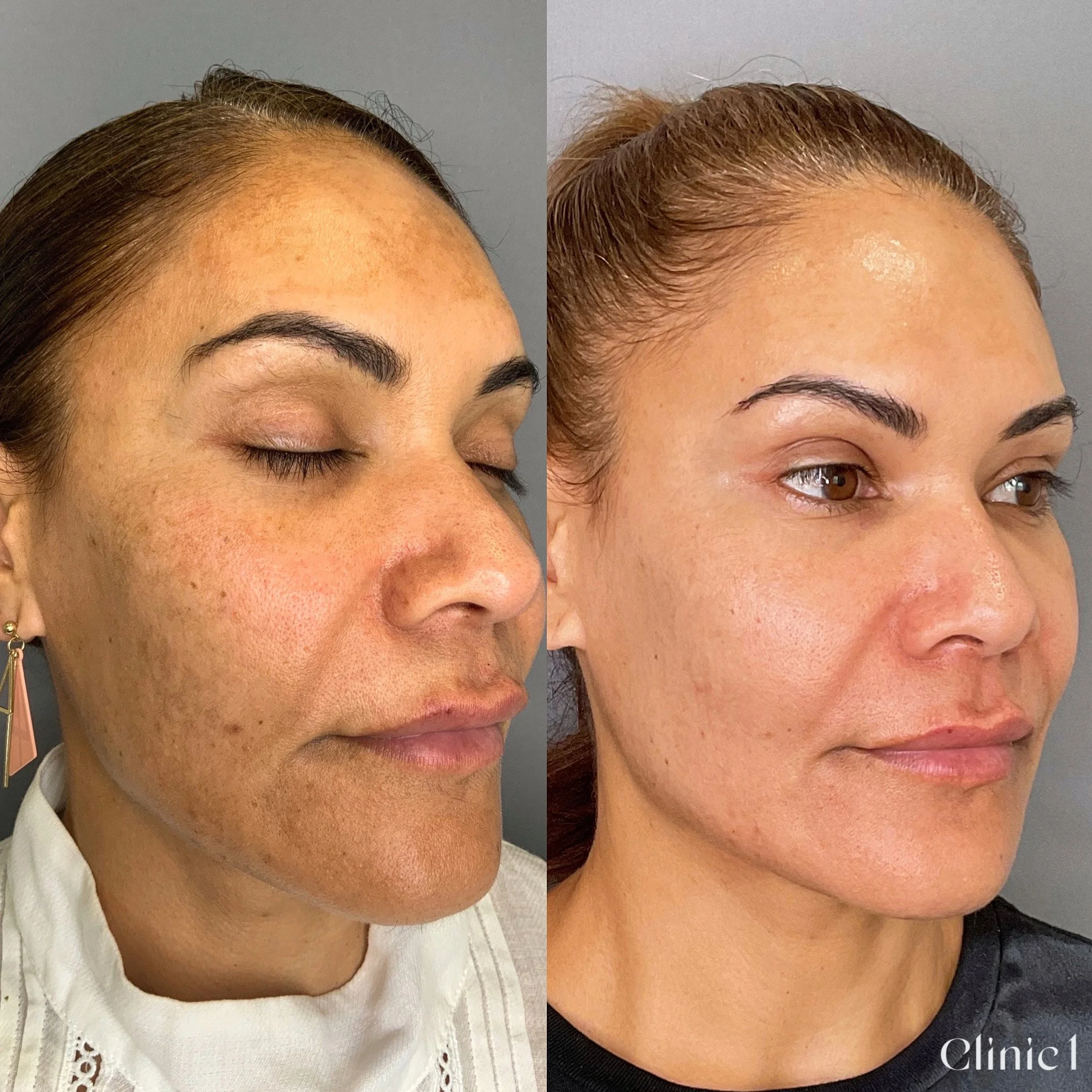How to treat Melasma with Clinic 1 Aesthetics
What is melasma?
Melasma is a common skin condition which is characterised by dark patches of skin on the face, forearms or neck. It occurs when excess melanin –the natural pigment present in our skin, hair and eyes – builds up in certain areas, leaving brown areas of hyperpigmentation.
Melasma predominantly affects women and can be caused by a number of different factors, including UV radiation and hormonal unbalance brought about by pregnancy or contraceptive pills. In fact, the occurrence of melasma is so common in pregnancy that it’s often referred to as the “pregnancy mask”. But despite the correlation, melasma can occur at any stage in life, from childhood to menopause and beyond.
Melasma can also affect people of any background, but people with darker skin tones are more likely to suffer from the condition as they have naturally higher levels of melanin. Frustratingly, women with darker skin tones have traditionally had limited treatment options for this same reason - until now.
It occurs when excess melanin –the natural pigment present in our skin, hair and eyes – builds up in certain areas, leaving brown areas of hyperpigmentation.
How do you prevent melasma?
The causes of melasma aren’t fully understood, although sun exposure, genetics and hormones seem to be the likely culprits. With this in mind, the prevention measures for melasma may help - but not totally prevent - its occurrence.
Avoid the sun
Exposure to the sun’s ultraviolet rays appears to be one of the biggest triggers of melasma. With this in mind, it’s essential to wear SPF protection year-round to protect your skin from damage, particularly in our tropical New Zealand climate.
Consider an SPF50 option, like Heliocare 360° Gel, which contains Vitamin E and C, or Heliocare 360° Mineral Tolerance Fluid, suitable for even the most sensitive skin.
Manage your stress levels
Hormonal imbalance seems to play a pivotal role in melasma, and cortisol, in particular, is one to look out for. The “stress hormone”, cortisol has been linked to a number of skin and inflammation issues, as it causes oxidative stress, accelerating the ageing process.
Balance your hormones
Cortisol isn’t the only hormone thought to trigger melasma; so are elevated levels of estrogen. Estrogen is at its highest during pregnancy and when using oral contraceptives or hormone replacement therapy (HRT). While we don’t suggest avoiding estrogen supplements entirely, it’s important to understand that hyperpigmentation is a potential side effect of their use.
What are the treatment options for melasma?
If you suffer from melasma, you may have heard that the heat from laser treatments can make your hyperpigmentation issue worse. And, if you have darker skin, you may have also been told that laser treatments aren’t suitable for your skin type at all.
Thankfully, advancements in aesthetic treatments, like the Moxi Laser, bring new options for women who want to say goodbye to their melasma.
That being said, while lasers can transform your complexion, melasma is a complex skin condition that must be treated on different levels.
At Clinic 1 Aesthetics, we offer a comprehensive treatment to clarify and balance your complexion. Using a combination of topical solutions and our revolutionary Moxi Laser technology, we can turn back time, ridding your skin of troublesome melasma patches. Our topical creams are not available over-the-counter, and are prescribed after a thorough consultation with our team of on-site medical staff. Part of your treatment protocol also includes an exclusive discount with nutritionist Emily Jensen, who can provide hormonal checkups to help you avoid further skin issues in the future.
In conjunction with your in-clinic treatment, we also provide you with a personalised at-home treatment plan including topical skin care products to maintain your results. This includes a combination of skin care products including the Osmosis range of serums, Juvenate regeneration products and Heliocare sun protection.
If you’re ready to improve the appearance of your Melasma – arrange an initial consultation with Clinic1 Aesthetics today and start your Melasma treatment journey.




